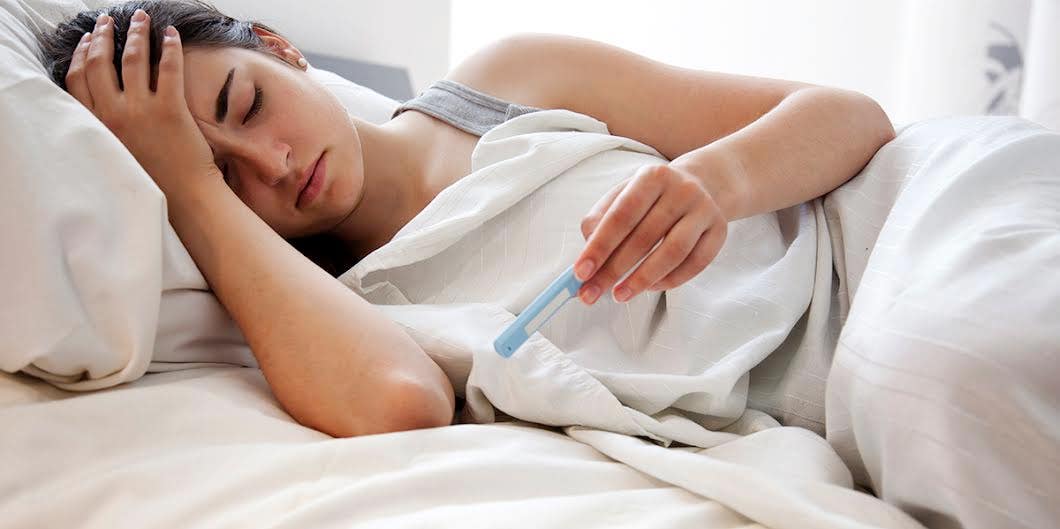The One Food Ingredient That Negatively Affects Outcomes Of Coronavirus Patients
Staying as healthy as possible is the goal.
 Getty
Getty It seems like we're learning more and more about the way coronavirus works every day, and now, there's another risk factor we should all be aware of: Our blood sugar.
Of course, the best way to avoid COVID-19 is to stay home and stay as healthy as possible, but for those who belong to higher risk groups, it's even more important to stay vigilant, and that counts for those who suffer from diabetes, too.
But what's the connection between coronavirus (COVID-19), sugar, and your blood sugar? Here's what you need to know.
Diabetes and high blood sugar doesn't make you more likely to catch COVID-19, but it could increase the chance of complications.
Keeping blood sugar under control is something that's important no matter what's going on — pandemic or no pandemic. And at this point, it's even more crucial for those who have been diagnosed with diabetes. While those with Type 1 or Type 2 diabetes seem to be at the same risk of contracting COVID-19, they have an increased risk of complications if they do end up coming down with it, and helping to prevent that from happening means keeping blood sugar under control, especially considering that around 25% of people who were hospitalized for severe infections did also happen to be diabetics.
Controlling your blood sugar is important.
According to Dr. Adam Brufsky, controlling blood sugar may be key for diabetics who are suffering from coronavirus — not only to decrease the severity of the illness, but also to control the spread as well. It's especially important to remain vigilant for those who suspect they could have diabetes, too, as he reports that a number of COVID patients also are found to have undiagnosed diabetes.
Sugars may make It easier for the virus to attach to cells.
As Brufsky explains it, having high blood sugar could make it easier for coronavirus to spread once it enters the body.
"High blood sugar increases the number of sugar-coated ACE2 receptors in the lungs of diabetic mice. So not only are the number of receptors greater, but also there are more sugars attached to them," he said. "This makes it easier for the virus to infect cells. When there is more insulin, or through diet or exercise, there is less sugar, so there are fewer ACE2 receptors and less sugar on each one, and this may reduce the amount of virus getting into the cell."
Eating sugar itself can weaken the immune system.
Internist Niket Sonpal has said that even non-diabetics who consume a lot of sugar on a regular basis could also put themselves at risk, since having too much sugar, as yummy as it is, could weaken the immune system.
“Research does show that consuming 75 to 100 grams of a sugar solution can hinder the body’s immune functions,” Dr. Sonpal said. “I should note that 75 grams sound like a lot, and it’s hard to think you may be consuming 75 grams of sugar, but really all it is is the equivalent of two cans of your soda.”
Any health condition that weakens the immune system also puts people at risk.
We already know that immunocompromised people are at greater risk of contracting coronavirus and of having a more severe infection than others, so Sonpal is suggesting that sugar consumption be limited — and that it happen outside of the times you may need to leave your home. This means not having excess amounts of sugar about five hours before leaving to grab groceries or run an essential errand. It's a small thing we can do, but it just might end up helping.
Staying as healthy as possible right now is what's most important.
This means taking care of ourselves and our existing health conditions while also getting enough sleep, practicing proper hygiene, and eating as healthy as possible. It can definitely be a tough time right now, but it's never been more important to keep our body's defense up against any intruders that might try to infect us. Sugar in moderation, people. It can be done!
Nicole Pomarico is an entertainment and lifestyle writer whose work has appeared in Cosmo, Us Weekly, Refinery29, and more.

